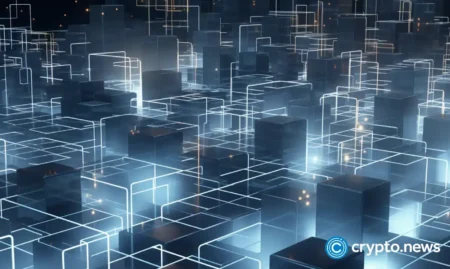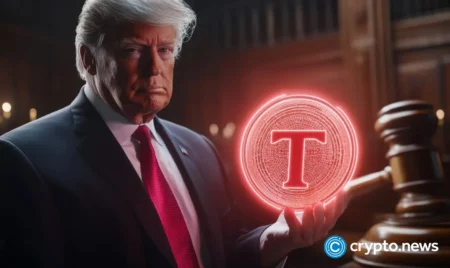Disclosure: The views and opinions expressed here belong solely to the author and do not represent the views and opinions of crypto.news’ editorial.
In a recent study published by Stanford researchers, 1,500 U.S. workers, including writers, designers, and artists, shared their views on AI in the workplace. The data is clear: creative professionals, if one can believe it, do not want AI to automate their core work. Less than a fifth of tasks in arts, design, and media were seen as suitable for automation. Creatives welcome help with repetitive chores but want to keep authorship and control.
For anyone working in creative fields, this is a familiar feeling. Creative labor is already undervalued, and new AI tools blur the line between collaboration and co-optation. They open their feeds and see their art, remixed by AI, printed on merch, and sold by strangers without their consent or any credit. But someone’s getting paid, and it isn’t the creatives.
Generative AI is already transforming work. It drafts emails, composes music, designs logos, and scripts dialogue. For many creatives, this isn’t collaboration. It’s co-optation. The very models doing the work were trained on your voice, your style, your archive.
As AI becomes both collaborator and competitor, questions about ownership grow louder. Who gets paid when a machine generates? Who is protected when reputations are at stake?
When AI becomes the artist and the thief
While it has opened doors for creativity and productivity, the centralized AI economy is built on scraped content.
In 2023, artists Sarah Andersen, Kelly McKernan, and Karla Ortiz sued Stability AI and Midjourney for training models on their work without permission. Getty Images filed suit after its watermarked photos appeared in AI outputs. A deepfake of Taylor Swift went viral with over 45 million views. Scarlett Johansson’s team intervened when OpenAI released a voice assistant that resembled her, despite her refusal to license her voice. The New York Times sued OpenAI and Microsoft for using its archives without authorization. Universal Music accused Anthropic of generating copyrighted lyrics.
These legal fights reflect a system that imitates human creativity while distancing itself from the people who made the originals.
What DeAI can do for creators
There is another path. Decentralized AI, or DeAI, offers a structural alternative. It embeds rights and attribution into the systems themselves. It is not a silver bullet. DeAI depends on legal clarity, broad adoption, and strong governance. But it does address one core problem: creators are too often excluded from the platforms and tools that rely on their work.
DeAI makes attribution programmable. A creator uploads data, defines usage terms, and binds those terms to smart contracts. These contracts automatically determine who can access the data, how it can be used, and under what conditions. A song trained on your voice without a license could be flagged and blocked before anyone ever hears it.
This is already happening in the field. The startup MyShell, which builds multilingual voice AI, used the Sahara platform to source tens of thousands of voice clips in a decentralized way. Instead of scraping YouTube or hiring a studio, they crowdsourced samples from contributors around the world by tracking, attributing, and compensating them using on-chain records. Creators retained control of their data while still participating in a scalable training pipeline. MyShell, meanwhile, saved time and cost without compromising quality. That is the promise of DeAI: fair exchange at the point of data.
Imagine a photographer uploading a portrait with rules attached: free to view on social platforms, $5 to use in a blog post, prohibited for AI training without a separate agreement. Ethical developers could license it with one click. Bad actors would be denied access automatically. That creates a different kind of system, one in which artists are licensors, not victims.
A long fight, a new toolkit
This debate has a long history. The Statute of Anne in 1710 gave authors, not printers, the right to control their work. France’s 19th-century moral rights protected the integrity of creative output. Even Renaissance artists like Albrecht Dürer fought against unauthorized copies. Every era of technological disruption has forced a redefinition of ownership.
DeAI continues that lineage. Where copyright created legal scaffolding, DeAI turns rights into software logic. And where laws often lag behind technology, decentralized infrastructure can help enforce ethical standards at scale.
Still, no system is perfect. DeAI could be co-opted. A consortium dominated by large studios might set licensing standards that sideline independent creators. A bug in a smart contract could lock a work away forever, with no one to fix it. There is no guarantee that decentralization alone will create fairness. Like any system, it depends on who builds it, who maintains it, and who benefits.
But these risks already exist in today’s opaque and extractive AI landscape. The difference is that DeAI, at its best, allows creators to help shape the tools that govern their work.
The next creative economy
Millions of people are trying to build sustainable lives through creative labor. For Gen Z and younger millennials, many of whom are priced out of traditional assets, burdened by student debt, and navigating unstable job markets, the ability to participate in ownership matters.
If we don’t rebuild the infrastructure of authorship now, we risk locking in a system that exploits by default. The choice is not between a flawless decentralized model and the current one. It is between a system with transparent, addressable flaws and one with opaque, unaccountable ones.
Getting this right will take more than good intentions. Creators and their guilds need to begin standardizing digital identity and asset registration. Developers should prioritize open, interoperable systems instead of closed platforms. Policymakers must create legal protections for artists who register their work on-chain, recognizing those registries with the same authority as traditional copyright offices.
Creative labor deserves protection. Participation should be rewarded. Exploitation should not.
Read the full article here










